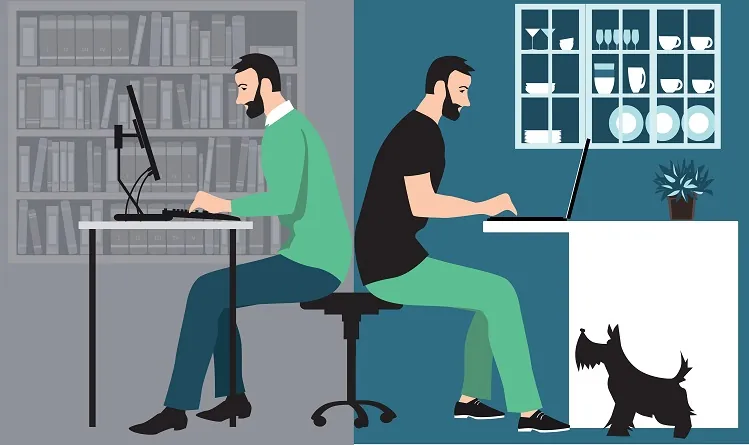Above all else, I attribute my professional success to the relationships I’ve built.
In every role I took on, I worked hard not just on my day-to-day tasks, but on people—I made a concerted effort to build genuine connections with those around me. I was always striving to gain the trust and respect of everyone I worked with, from my peers to the senior executives who ended up changing my career trajectory.
In the business world, relationships are everything. That’s why, even though I’ve moved around a lot during my career, I always stayed at each company for at least a couple of years—it takes at least that long to really connect with people.
There’s no way I would have become a bank branch manager at 21 without the help of my mentor, Gail, a senior executive at the bank. Fresh out of school, I was eager to learn and do more, and she was willing to take a chance and invest her time and knowledge in me.
Gail gave me the roadmap to excel at my job and to set myself up for advancement. I would ask her what I needed to do to move up, focus on internalizing what she said, and really follow through to show her that I could do more. Delivering on what she’d asked of me just made her want to keep investing in me.
These are the types of relationships that will define your career. Here are eight ways to cultivate them:
1. Remember that executives and leaders are people, too.
The idea of approaching a high-ranking person at work can be intimidating.
Don’t be afraid to initiate conversations with the busy leaders at your company—just respect that they are under a lot of pressure and have little time.
But almost any executive will share a few minutes of their day to help you, especially if you demonstrate your enthusiasm and capability.
For example, when I was tackling tasks for Gail at the bank, other executives jumped in and asked how they could help me, purely because they were excited that I was so excited.
2. Focus on how you can help the person you want to establish a relationship with.
You can’t just think about what you’re going to get out of the relationship.
Reach out to the person regularly but not incessantly. Get to know them and learn about the challenges they deal with. Find out ways you may be able to make their lives easier.
People are busy and stressed and have lives outside of work. They don’t have time to invest in someone that doesn’t offer any return on that investment. So make sure you’re always working to figure out what you can take off their plate, who you can connect them with to help them solve a problem, or any other way you can make yourself useful.
3. Be thoughtful in your relationships.
Never be afraid to go the extra mile.
Recently, one of my favorite long-term clients was telling me about some difficult stuff she was facing in her personal life, combined with a really hectic period at work. So I sent her flowers with a note that said I wanted her to have something to smile about for a moment. This small gesture that only took me a few minutes totally brightened her day.
When you grab coffee with someone, pay for theirs. Offer to take on someone else’s work when they’re out sick or overwhelmed. Simple, thoughtful acts that take your focus off yourself and recognize that the other person has a tough job go a long way in relationship-building.
4. Figure out the best way to communicate with the person.
I try not to send one-sentence emails to my team anymore.
I used to think that if a brief one-line email got the point across, it was doing its job. Then I found out people were concerned by my tone and would spend unnecessary time analyzing it. Think about the tone you use when communicating with someone, which can be especially tricky with digital messaging and email.
Additionally, ask the person what their preferred method of communication is for these types of relationships. That way, you can be sure they’ll see your message in a timely manner and that you won’t be bothering them.
For example, I keep my Facebook private and accept close friends only. I rarely check my LinkedIn because it’s always people pitching me something. And I think voicemails are a waste of time. If someone hoping for some mentorship tried to contact me via any of these methods, it wouldn’t work.
Be thoughtful about tone and the way you contact someone when you’re getting to know them.
5. Get some real face time every once in a while.
It’s all too easy to get comfortable with communicating only digitally. Email, Slack and even phone calls often aren’t personal enough to build sincere emotional connections.
Instead, suggest grabbing a coffee or lunch with someone. Break free from the mundane cycle of daily digital messaging that can easily cause a relationship to fizzle out.
6. Don’t always make it about work.
If you work in the same field or at the same company, you’re obviously going to talk about work a lot. But if you don’t know anything about who the person is, why they work there, or anything else about them, you’ll never establish a real relationship.
You don’t have to know everything about each other, but you do have to have some type of personal connection that gives you an entry point to learning about what’s going on with them.
Find common ground—what connects you to this person? And don’t make it about you, make it about them (people love to talk about themselves).
7. Keep your commitments.
Once you make a commitment, you absolutely must follow through. Failing to do so will fracture any relationship, strong or weak.
Focus on what you can bring to the relationship and how you can help the other person. Then do what you promised. Proving reliability is a strong connecting force in any relationship.
8. Know you won’t click with everyone, and that’s OK.
It’s like dating—there will be some people who you’ll really like and want to invest in a relationship with, and some you won’t. Don’t fake a relationship with someone just because you feel like you should.
It’s a bit tougher in the digital age to create strong personal connections at work. As a result, I see fewer young people finding mentors.
If you’re hungry to learn more, get better at what you do, and learn from the insight of people who know your industry inside and out, the most important thing to remember is that the effort to create a relationship must come from a genuine place. You should have no other motive than connecting with the person.
The benefits of meaningful, mutually beneficial, genuine relationships are limitless—you can learn new skills quickly, you’ll put yourself in a place when you could get a backdoor reference, and your connections will help you in unexpected, career-changing ways.
***
This piece was originally published on Minutes.com.





